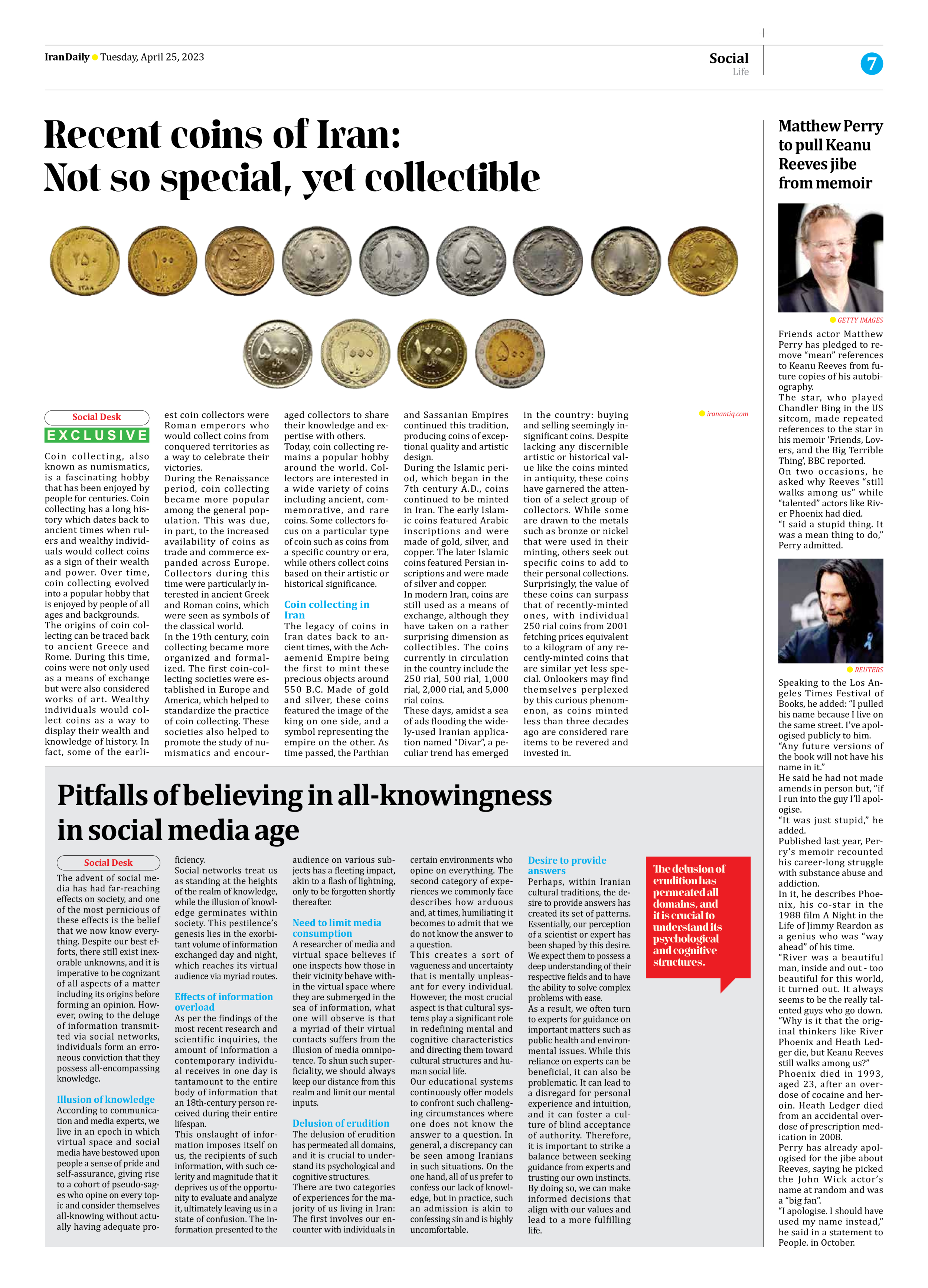
Pitfalls of believing in all-knowingness in social media age
The advent of social media has had far-reaching effects on society, and one of the most pernicious of these effects is the belief that we now know everything. Despite our best efforts, there still exist inexorable unknowns, and it is imperative to be cognizant of all aspects of a matter including its origins before forming an opinion. However, owing to the deluge of information transmitted via social networks, individuals form an erroneous conviction that they possess all-encompassing knowledge.
Illusion of knowledge
According to communication and media experts, we live in an epoch in which virtual space and social media have bestowed upon people a sense of pride and self-assurance, giving rise to a cohort of pseudo-sages who opine on every topic and consider themselves all-knowing without actually having adequate proficiency.
Social networks treat us as standing at the heights of the realm of knowledge, while the illusion of knowledge germinates within society. This pestilence’s genesis lies in the exorbitant volume of information exchanged day and night, which reaches its virtual audience via myriad routes.
Effects of information overload
As per the findings of the most recent research and scientific inquiries, the amount of information a contemporary individual receives in one day is tantamount to the entire body of information that an 18th-century person received during their entire lifespan.
This onslaught of information imposes itself on us, the recipients of such information, with such celerity and magnitude that it deprives us of the opportunity to evaluate and analyze it, ultimately leaving us in a state of confusion. The information presented to the audience on various subjects has a fleeting impact, akin to a flash of lightning, only to be forgotten shortly thereafter.
Need to limit media consumption
A researcher of media and virtual space believes if one inspects how those in their vicinity behave within the virtual space where they are submerged in the sea of information, what one will observe is that a myriad of their virtual contacts suffers from the illusion of media omnipotence. To shun such superficiality, we should always keep our distance from this realm and limit our mental inputs.
Delusion of erudition
The delusion of erudition has permeated all domains, and it is crucial to understand its psychological and cognitive structures.
There are two categories of experiences for the majority of us living in Iran: The first involves our encounter with individuals in certain environments who opine on everything. The second category of experiences we commonly face describes how arduous and, at times, humiliating it becomes to admit that we do not know the answer to a question.
This creates a sort of vagueness and uncertainty that is mentally unpleasant for every individual. However, the most crucial aspect is that cultural systems play a significant role in redefining mental and cognitive characteristics and directing them toward cultural structures and human social life.
Our educational systems continuously offer models to confront such challenging circumstances where one does not know the answer to a question. In general, a discrepancy can be seen among Iranians in such situations. On the one hand, all of us prefer to confess our lack of knowledge, but in practice, such an admission is akin to confessing sin and is highly uncomfortable.
Desire to provide answers
Perhaps, within Iranian cultural traditions, the desire to provide answers has created its set of patterns. Essentially, our perception of a scientist or expert has been shaped by this desire. We expect them to possess a deep understanding of their respective fields and to have the ability to solve complex problems with ease.
As a result, we often turn to experts for guidance on important matters such as public health and environmental issues. While this reliance on experts can be beneficial, it can also be problematic. It can lead to a disregard for personal experience and intuition, and it can foster a culture of blind acceptance of authority. Therefore, it is important to strike a balance between seeking guidance from experts and trusting our own instincts. By doing so, we can make informed decisions that align with our values and lead to a more fulfilling life.







